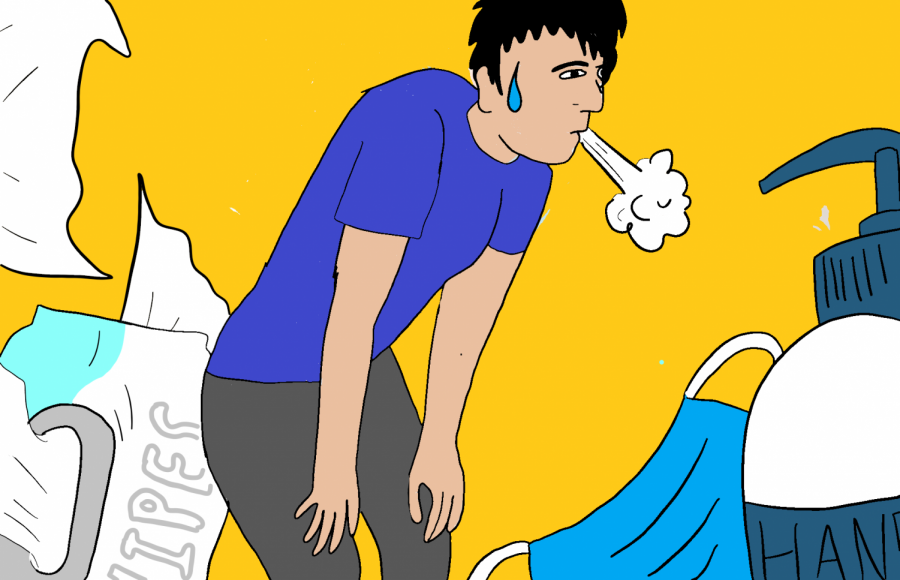How to Cope with Quarantine Fatigue
Over the past months, students have been struggling with a common phenomenon known as “quarantine fatigue,” causing them to feel exhaustion and a lack of motivation associated with the new restrictive lifestyle of sanitizing and mask wearing that COVID-19 has brought.
The sudden outbreak of the pandemic this March caused initial panic among students, keeping most cautious to follow safety measures and recommended guidelines. However, fast-forwarding 2 months, the fading sense of immediacy has caused students to become unwilling to stay in constant vigilance.
According to Northwestern University Feinberg School of Medicine professor Jacqueline Gollan in an interview with CNN, such feelings reflect the belief that warnings are not real or relevant, causing people to de-emphasize the actual risk. As people show less motivation to follow such precautions, they bend safety behaviors like washing hands, wearing masks and social distancing.
This phenomenon is commonly referred to as “quarantine fatigue,” which is also known as “caution fatigue.”
“I think quarantine has made me more tired, and my sleep schedule has been really messed up because of quarantine,” IVA junior Angela Chen said. “Since I don’t go to school in person, I procrastinate on my homework because all my classes are online and staying in one room has made me less motivated to finish assignments.”
While quarantine fatigue is easy to become caught up in and lose our caution in dangerous situations, it is important to overcome such feelings to stay healthy both mentally and physically.
According to director of Community Psychiatry PRIDE and Mass General Research Scholar Dr. Luana Marques in an interview with Massachusetts General Hospital, some ways to overcome quarantine fatigue include recharging through eating, sleeping and exercising, creating a normal routine, skipping processed food and connecting with others.
“I feel like this lack of motivation and anxiety are still with me, but it’s definitely a lot less than what I used to have,” junior Sriya Boppana said. “I started focusing on things I had to get done and things I like doing during this time to get me back to normal, and I think those two things really helped me lower my negative feelings of quarantine fatigue.”
Students are each finding their own ways to control quarantine fatigue through various activities or exercises, but mental health specialist Maureen Muir especially recommends practicing mindfulness.
“I think it’s really important for everyone to have in their mind this will end. We don’t know when it’s going to happen, but it will not always be like this,” Muir said. “If we get stuck in the day-to-day…negative feelings all the time, then it’s easier to just stay in that quarantine fatigue feeling. But if you force yourself to change those thoughts to feel a little bit more positive that this will end and I can control this, then it’s easier to combat those feelings of fatigue.”
Your donation will support the student journalists of Portola High School. Your contribution will allow us to purchase equipment and cover our annual website hosting costs.

Grace Baek is the assistant Sports Editor for her second and final year on the Pilot. She is looking forward to getting to know the new staff members and...

Krisha Konchadi is the front page editor this year on the Portola Pilot. Along with editing and creating the front page, she loves making graphics and...




